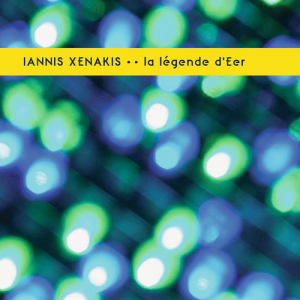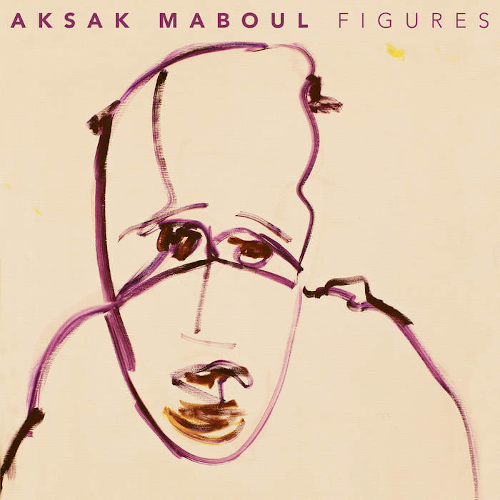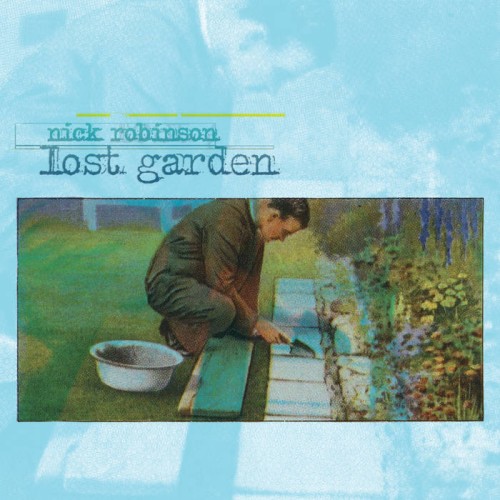 The classic thing to say about Iannis Xenakis is that he’s fairly close to being sui generis. Oftentimes, that’s the sort of compliment that can feel fairly weak — which is to say that there’s not a musician operating that doesn’t think they’re not sui generis, but the majority of them are wrong. Our Iannis is probably closer to someone like Olivier Messiaen (who apparently taught Xenakis a bit) in that you can say that there’s people who aren’t a million miles away, but not many who approach composition in quite the same way.
The classic thing to say about Iannis Xenakis is that he’s fairly close to being sui generis. Oftentimes, that’s the sort of compliment that can feel fairly weak — which is to say that there’s not a musician operating that doesn’t think they’re not sui generis, but the majority of them are wrong. Our Iannis is probably closer to someone like Olivier Messiaen (who apparently taught Xenakis a bit) in that you can say that there’s people who aren’t a million miles away, but not many who approach composition in quite the same way.
In terms of forebears, Xenakis is something like a very modernist avant-gardist — super-complex, pieces approximating “impossible to play” and with the rigour of a properly old-school composer. There’s nothing to intimate the post-Futurist/Dada/Fluxus of John Cage et al (on that side of the Atlantic) or the restitution/ reconstitution of tradition from Igor Stravinsky through György Ligeti. Yet he’s not as preposterous, nor coloured by the universalisms of Karlheinz Stockhausen.
In terms of modern composers, for my money, the only one who compares to Xenakis is Helmut Lachenmann, but that’s not really a good fit. Lachenmann doesn’t quite explore enharmonicism in the same way and (perhaps more importantly) has a lot of composition using “noise” to draw upon; whereas Xenakis explored “noise” (in the sense of non-tonal music) in a way that was relatively fresh at the time. The thing, the context of Xenakis is always seemingly that he was the guy who approached non-tonal ideas with the kind of rigour of Arnold Schönberg, rather than with the insouciance of Cage.
Anyway. This is a music review. It’s not often the case that I’d valorise “headphone” music over stereo music, but this is definitely a headphone jobby — there’s a dense morass of carefully recorded textural sound that, like lot of early musique concrẽte (though I’m not clear if this ought rightly be described as that), really benefits from being right inside your skull. There’s a lot of sounds that are carefully detailed — water sounds over percussive tin and rolling bottles of glass — but outside of the headphone environment there’s a tendency for it to come across as a watery wash of rainstick. Which is, in fairness, a lovely sound, but probably not the kind of ephemeral thing that ole’ Ianny X was looking for.
The problem I have is that the elision of method with someone like Xenakis threatens to create an equanimity with lesser composers; hear this on the radio and you mightn’t have the slightest idea that it’s possibly an enormous labour. Not that that makes it better, but there’s a wealth of detail here that’s worth finding out how it happened. And it may be, of course, that Xenakis was just having a pop at some electronic stuff — certainly, he wasn’t consistently interested in electronics throughout his career, but he definitely had more than a cursory interest or experimentation (unlike, say, Ligeti’s spirited but ultimately incidental forays into electronic music).
The other issue I have with how this record is framed is that I get a bit annoyed with how he is posited as a forbear of noise and industrial music; on the one hand, I genuinely don’t believe that a pre-Internet generation were picking up on Xenakis on the basis of Throbbing Gristle; Merzbow was super obscure until the 1990s (as I recall) and it took me a lot of digging to come across Xenakis (a Lee Ranaldo quote, as I recall, and a second-hand CD find was my introduction). What I mean there is that Xenakis is definitely a post-Internet “huge influence” on noise and industrial, but I remember very clearly ’90s industrialists having minimal idea about Whitehouse and TG, let alone electro-acoustic folk like Xenakis.
It, and Xenakis, deserve to be heard outside of the border-case fetishes of “weirdo”, “noise” music… I remember, a long time ago, seeing (I think) Pléïades at the proms – massive percussion piece, I suspect on the same bill as a movement or so from Gustav Holst‘s The Planets — and people, grown adults, paid-up members of the composition club, booing. Loudly booing. And that’s the situation that I don’t want Xenakis to be in. This perhaps is a noisy and a fluid piece that rarely signposts its composition, but if the establishment can take Messiaen (which is has and does), it can bloody well accept Iannis Xenakis.
So yeah. tl;dr — Xenakis is always worth listening to and this is a great instance of him, and is something approximating “orthodox” rendering of Xenakis-qua-electro-acoustic composer. Buy buy buy (on vinyl to boot).
-Kev Nickells-



